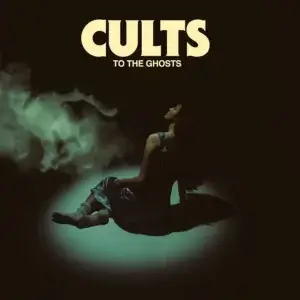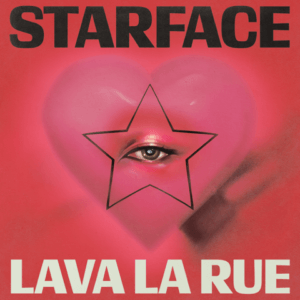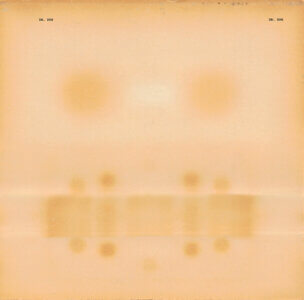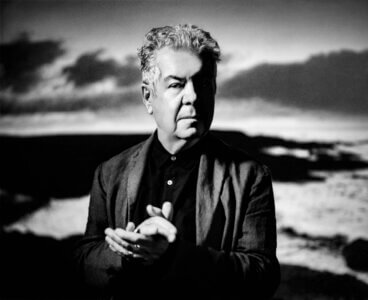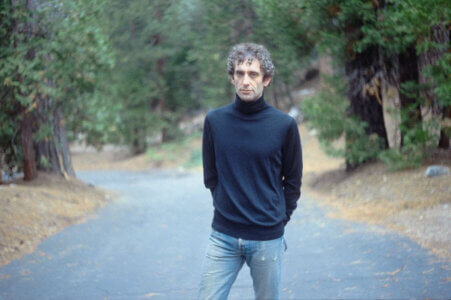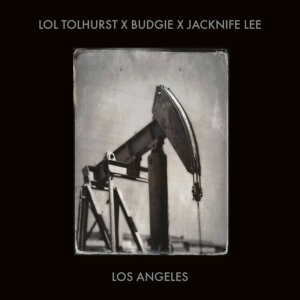Adam Miller’s Illusion Pool reflects a return to the microphone

Adam Miller’s ready to speak up again. That’s the elevator pitch for the Los Angeles-based musician’s new Illusion Pool EP, his second solo release since his beloved Chromatics project wound down in 2021, and the first to find him back on the microphone in a good long while. If last year’s instrumental Gateway LP was a loose, atmospheric love letter to effects-spangled guitar ambiance, Illusion Pool serves as a chance to open up his vocal cords again — oftentimes in a brand-new way.
More than 20 years on from the raw yowling of Chromatics’ debut 7-inch — fully performed by Miller back when he was living in Seattle — Illusion Pool presents the vocalist in a chiller range than ever before. While its opening title track suggests a loss of self (“I hid all my love inside a stranger’s dream / And when I woke up there was nothing left of me”), grace and self-assurance honey Miller’s newly low-toned croon. Elsewhere, he brings gravitas to the Byrds’ “Everybody’s Been Burned,” here reimagined as a cosmic, post-punk torch ballad with drum backing from the Cure’s Lol Tolhurst. For a new version of Chromatics’ “Camera,” he honours the autotuned vocal treatment he gave the piece over a decade ago — that band’s Ruth Radelet likewise employed the effect for their 2018 re-recording — but explains to Northern Transmissions that he’s ultimately yearning for a less-processed sound going forward. An exposed, human quality to connect with.
What’s sure is Illusion Pool is just the beginning for the ever-prolific player. “I have a lot of different projects cooking at once, so this new EP is just one of those,” he notes, hinting at various upcoming instrumental projects, a recent bass guitar turn for Fawn —the latest project from former Chromatics collaborator Nat Walker and Glass Candy’s Ida No — and a swell of upcoming collaborative work with Cold Beat’s Hannah Lew (who is likewise a steady vocal presence on Illusion Pool).
Below, Miller further reflects on his Illusion Pool, walking away from effects and aggression, and traveling across the various branches of psychedelic punk.
This interview has been edited and condensed.
NORTHERN TRANSMISSIONS: One of the things that struck me about the announcement of this EP is that you mentioned how there’d been a time when you “hated your voice”, especially through that early Chromatics period. Can you tell us about singing for the first time? Was it just as contentious a relationship for you from the jump?
ADAM MILLER: I’ve been singing ever since I was a teenager, but I never really liked my voice. I mean, most people I know don’t really like the sound of their voice — except psychopaths, or something. It’s more been a matter of getting comfortable with myself. I just think when you’re more comfortable with who you are as a person, you become comfortable with all aspects of yourself. So, instead of trying to be something that I wasn’t, now I’m content being who I am.
NT: What “wasn’t you” about your singing in the past?
AM: It was me, for sure, but there’s oftentimes only so much of yourself that you really feel comfortable revealing. Like, in the early days — Chrome Rats-era Chromatics — I was coming from more of a d.i.y., punk background where everything was really aggressive. You’re hitting your strings and the drums aggressively; you’re screaming. That’s fun, and I still love so much music like that, but in a way, you’re hiding behind the volume and the aggression.
Life is hopefully about constantly growing and learning. And we just grow out of things. So, it went from the punk thing to getting really into Curtis Mayfield and Junior Murvin. I liked their falsettos, and I always sing along to their records in that falsetto. I learned if I ran [my falsetto] through autotune and pitched it down, it got this really weird sort of androgynous effect, which we used on a handful of Chromatics songs that I sang on. I still use that effect — it’s on the song I just released, “Camera” — but at a certain point that started feeling limiting for me as well. [Autotune] can elevate the emotion of a song, but it can also feel like a barrier between you, as person, and the audience. I just wanted remove all barriers. I guess you can say EQ, reverb, and all these other things are still dressing the vocals on some level, but it’s still more of an exposed vocal performance.
NT: This is obviously your solo thing, but recording “Camera” again fits in with the broader continuum of Chromatics. I think of “Beach of Infants,” or “Jesus” — songs you recorded multiple times for various releases. Chromatics themselves did a couple takes of “Camera”. What appeals to you about the idea of a reincarnated song?
AM: It’s always something that I can be exploring. If there’s another way to explore a song or vocal melody, then I’m going to do it. The last set of shows my band did, we were playing that song and it just felt so good. I didn’t really know how I felt about doing new versions of Chromatics songs, especially songs that there are multiple versions of, but I just said to myself, ‘Whatever!’
NT: You also rearranged the Byrds’ “Everybody’s Been Burned” for this EP. How did you first come across that song?
AM: I’ve loved that song since I was a teenager in the ‘90s. I first heard it on Sebadoh’s Smash Your Head on the Punk Rock. I was a huge Sebadoh fan — still am — but that led me to discovering the Byrds. The Byrds are probably one of the biggest influences, throughout my whole musical career. I just love them. I started messing with the arrangement last summer with my friend Mike [Oor, Illusion Pool co-producer and a member of Miller’s backup band, Inner Magic]. We turned it into this post-punk-y rendition, which was an accident. I can’t even remember how we were able to make this connection, but we were able to ask Lol from the Cure to play drums on it. He gave it this Pornography / “The Figurehead” beat. Pretty surreal to have that happen!
I love Lol’s drumming. The drum style on those first few Cure records are some of my favourite drum moments, ever. So, it was pretty crazy to be working with somebody like that. And he’s such a cool guy, too. I don’t see him every day, but we’re friends.
NT: Pardon the pun, but you’re hitting two birds with one stone, in a sense, in that you grew up a fan of both the Byrds and the Cure.
AM: Totally. And Lol said that he always viewed the Cure as a psychedelic punk band. I know that the Cure were listening to a lot of the same music when they were coming up as I’d gotten into later on. We have a lot of the same influences.
NT: There’s a psychedelic edge to Gateway, your instrumental album. Would you consider Illusion Pool to be part of that psychedelic punk tangent, too?
AM: I see it all as the same thing. Gateway wasn’t all that different from Chromatics, except it didn’t have vocals. This isn’t all that different from Chromatics, either — the psychedelic repetition and shimmery guitar tones were always a big part of Chromatics. They’re branches on the same tree. But when I did Gateway, I was really in this mode where I was just so tired of vocals and drums. I never wanted to hear them again. So, I just kind of thought, “What would it be like to make something really bare. Exposed.” So, it’s a really minimal guitar record. [Afterwards] I was like, “I kinda like drums and vocals again,” so that’s how this EP came about.
NT: There’s a different vocal style to Illusion Pool, compared to the earliest Chromatics stuff, where your voice sits in a much higher register. Here, you’re settling into something like your natural, rich baritone talking voice. How did you end up landing in this range?
AM: Coming from that punk background, I always thought that volume and aggression equaled authenticity. I’m not saying it doesn’t, but I was trapped in that mindset for a while. I always thought that when you sung, you were really supposed to project your voice. I guess that’s probably true [of the] Chrome Rats era, where I was having to shriek over really loud drums, guitar, and bass. It wasn’t really until the past couple of years where I realized, “Wow, I don’t have to sing with a lot of volume.” Once I stopped doing that, I settled into this voice.
Part of me still thinks that I’m doing something wrong. I was recording vocals with my friend Chris Coady — he’s a music producer, and he records and engineers a lot of bands — and I was like, “Am I a really quiet singer?” He was like, “No…you’re louder than most!” But to me, I’m still viewing myself as a super quiet, mousey singer, because I’m not projecting that loud.
NT: The title track to Illusion Pool seemingly deals with identity, taking stock of these reflections of yourself. Where are you at with yourself at the moment? Are you in a good spot?
AM: Yeah! I feel like I’m in a great spot. I feel really grateful for all the things that have happened to me, and all the things I’ve gotten to experience, especially as I see so much hardship, war, and awful things going on in the world. I think it’s awesome that I still get to have this life where creativity is the focus. I’m able to make a living off of it. I mean, it’s a grind and a hustle, [but] I would get bored every time I had to have a real job. I would just be thinking about music or books the entire time. It’s pretty awesome that I get to have this life, and I do not take that for granted in the slightest.
Like, when I think back to myself listening to [The Cure’s] Seventeen Seconds at 19 years old…. “Oh, yeah, one day that guy [ed. Lol Tolhurst] will be playing drums on a couple of songs of yours.” Like, I still have to pinch myself sometimes. It’s crazy.
order Illusion Pool by Adam Miller HERE
Latest Reviews
Tracks
Advertisement
Looking for something new to listen to?
Sign up to our all-new newsletter for top-notch reviews, news, videos and playlists.


